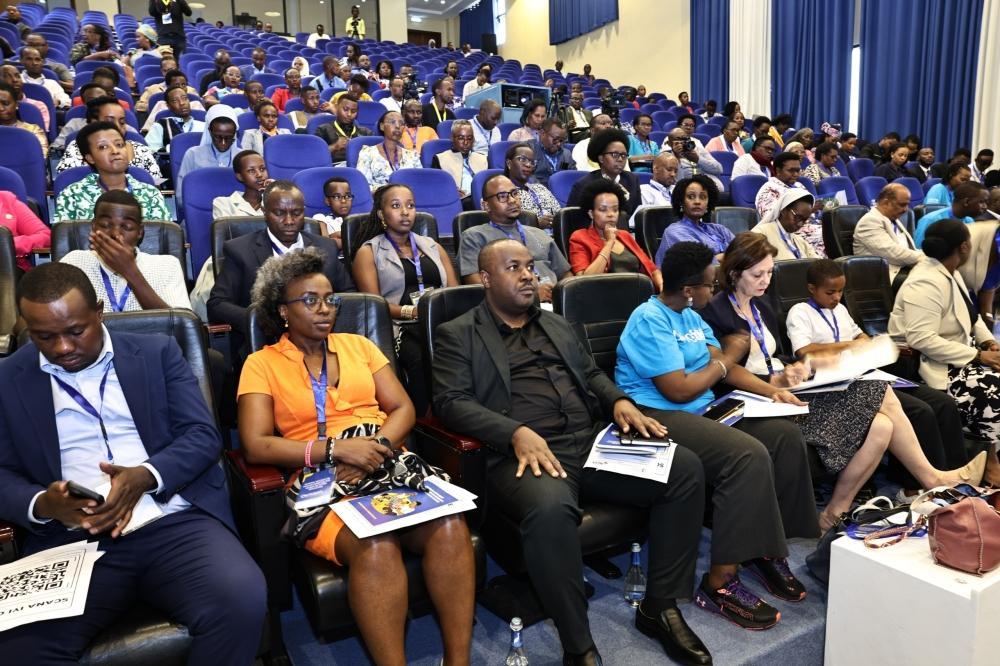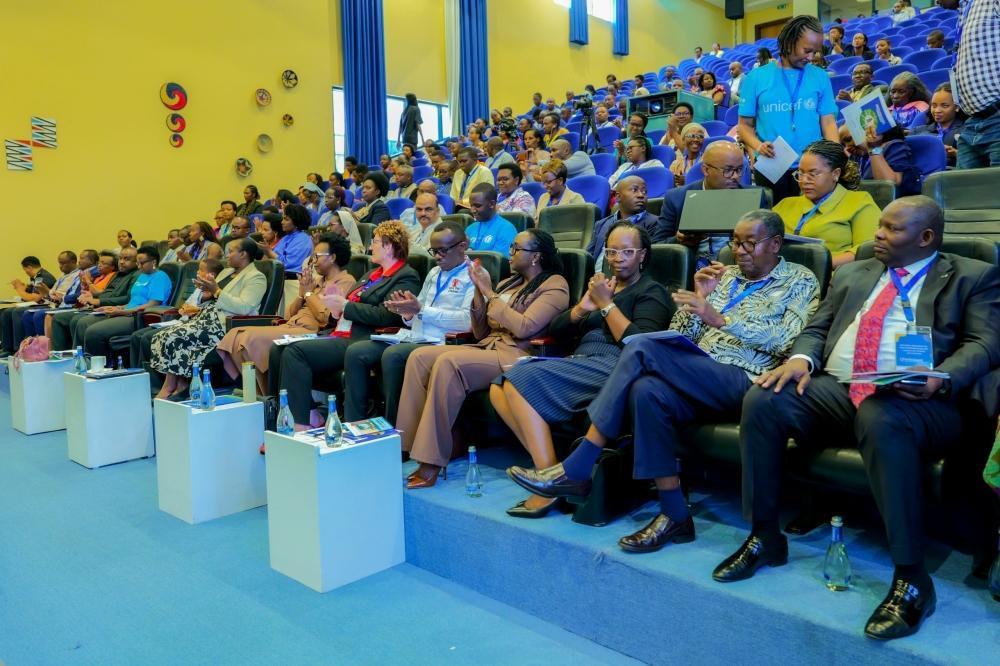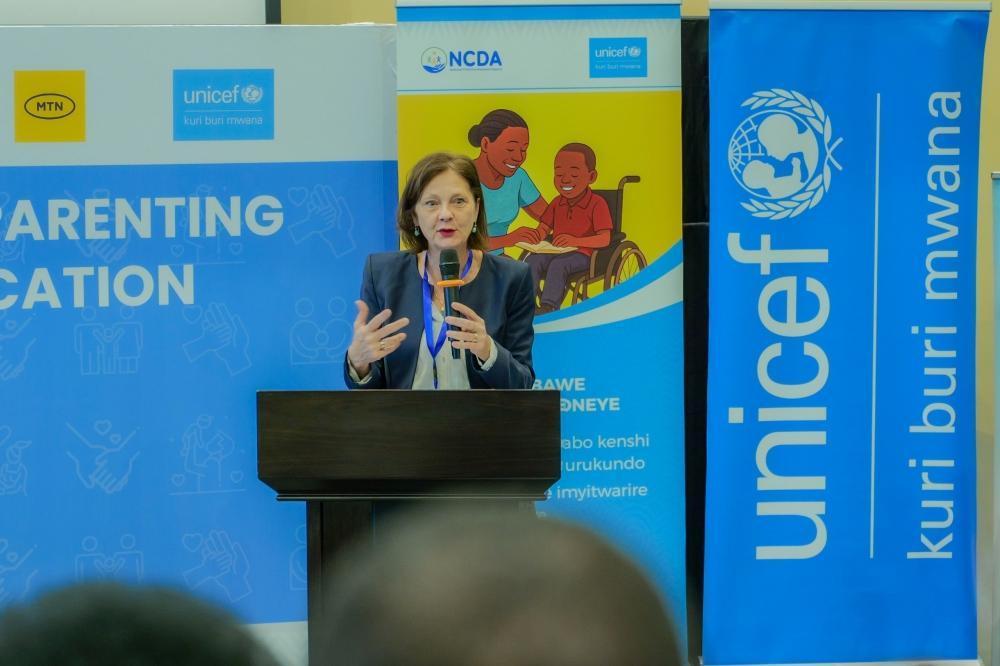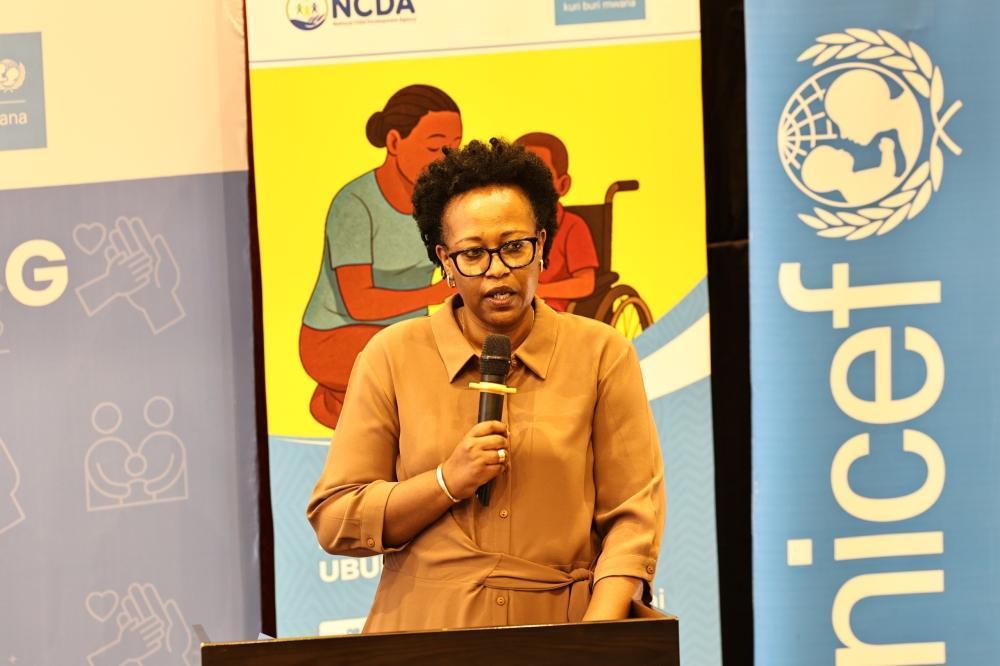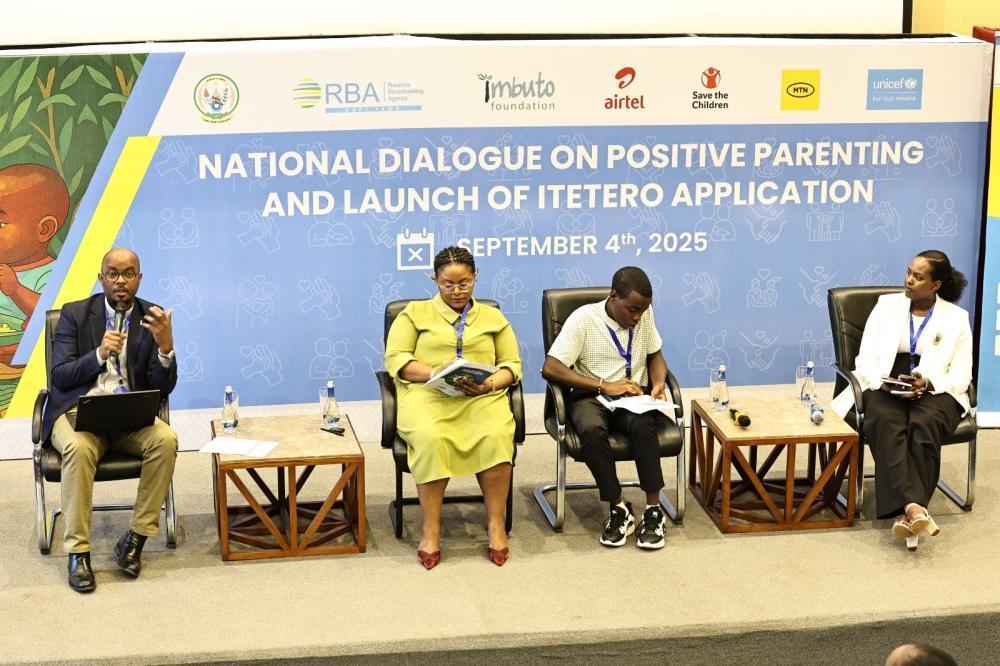Africa-Press – Rwanda. Six in ten Rwandan parents with children under six still use corporal punishment or other harsh discipline methods, a situation experts say risks harming children’s development and mental health.
The revelation was made on Thursday, September 4, during the National Dialogue on Positive Parenting, which brought together government officials, UNICEF Rwanda representatives, child protection experts, parents, faith leaders, and children to address parenting gaps and propose solutions.
Assumpta Ingabire, Director General of the National Child Development Agency (NCDA), said findings from Rwanda Governance Board’s 2024 report show that only 38 per cent of parents practice non-violent discipline, leaving 62 per cent relying on punitive measures such as beating, verbal abuse, or even burning children as a form of punishment.
“We have fallen short, which is why we organised this meeting to speak openly and find solutions,” Ingabire said, noting that harsh parenting, family conflicts, and child neglect contribute to rising cases of depression and suicide among adolescents.
The 2018 RBC report found that 20.6 per cent of children aged 10–16 had suicidal thoughts and 18 per cent attempted suicide at least once.
Experts urged the government to strengthen laws to explicitly ban corporal punishment in all settings.
“Corporal punishment damages family relationships and teaches children that violence is an acceptable way to resolve conflict,” said James Nduwayo, a child rights governance specialist from Save The Children. “We need clear laws, guidelines, and more awareness to shift societal norms toward positive discipline.”
UNICEF Rwanda Representative Lieke van de Wiel praised Rwanda’s commitment to early childhood development under the National Strategy for Transformation (NST2) but stressed that a cultural change in parenting was vital.
“Parenting used to be seen as something strict, but now it is about bringing the best out of yourself and your child in an atmosphere of positivity and trust,” she said.
Van de Wiel also highlighted the growing mental health challenges among parents — particularly teenage mothers and fathers — saying that parenting is stressful and must be supported with tools that channel that stress positively.
“Investing in children is the only way forward,” van de Wiel concluded. “This initiative is powerful because it involves children, parents, youth, and fathers — it will create a ripple effect beyond families and benefit the whole society.”
Children’s Voice
Children present at the dialogue also shared their concerns, calling for more parental involvement.
“Sometimes even during meals, parents are glued to their phones instead of asking if the child is happy,” said Ishimwe Kevin, an advisor to the children’s committee.
Children also requested more support for those with disabilities and solutions that address the root causes of street life, rather than only placing children in foster families.
The dialogue concluded with commitments to: Train parents and domestic workers in positive parenting; Build more playgrounds and encourage play; Raise awareness on the harm of corporal punishment; Campaign for fathers to register children at birth; Strengthen efforts to prevent drug and alcohol abuse among children, among others.
For More News And Analysis About Rwanda Follow Africa-Press

